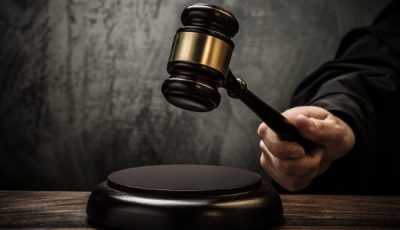Kim Dotcom Can Be Extradited, NZ Court Of Appeal Rules
 WELLINGTON, New Zealand – In the latest development in his long-running case, the New Zealand Court of Appeal has ruled Megaupload founder Kim Dotcom can be extradited to the U.S. for trial on various charges, including criminal copyright infringement and conspiracy to commit money laundering.
WELLINGTON, New Zealand – In the latest development in his long-running case, the New Zealand Court of Appeal has ruled Megaupload founder Kim Dotcom can be extradited to the U.S. for trial on various charges, including criminal copyright infringement and conspiracy to commit money laundering.
In a release explaining the court’s decision, the Court of Appeal said the appellants – Dotcom, Mathias Ortmann, Bram van der Kolk and Finn Habib Batato – are “eligible to be extradited” to the U.S. for trial.
“The United States relied on a range of extradition pathways in seeking the extradition of the appellants,” the court stated in its release. “The Court has confirmed all of these extradition pathways are available to the United States, and that the United States has tendered sufficient evidence to support their case on those pathways.”
Among other findings on issues raised by the appellants, the Court of Appeal held that a lower court judge “was right not to require proof of the copyright status of the works the appellants were said to have infringed.”
“Extradition law focuses on the core criminality alleged, and matters that are not part of that core criminality are transposed from the requesting state into New Zealand law and assumed as part of the extradition process,” the court said in its statement. “Copyright status is such a matter but, even if it is not, the Court considered the evidence was sufficient on the point.”
The Court of Appeal also found that it need not rule on the merits of the case brought by the U.S., because doing so was not part of its writ in this case.
“An extradition hearing is not a trial on the merits,” the court said in its statement, “and the evidence relied on by the United States discloses a clear prima facie case to support the allegations that the appellants conspired to, and did, breach copyright wilfully and on a massive scale for commercial gain.”
The court also found no reason to probe allegations of improper behavior on the part of U.S. authorities in the case.
“(T)he question of whether the United States had engaged in misconduct was not of sufficient importance to warrant a further appeal to the Court, particularly given the narrow focus of the Extradition Act process,” the court said in its statement. “And in any event, the evidence the appellants say the United States wrongfully prevented them from calling would not affect the question of whether there is sufficient evidence to make out a prima facie case.”
Dotcom’s attorney, Ira Rothken, took to Twitter to say he and his client are not yet done fighting extradition.
We are disappointed with today’s Judgment by the NZ Court of Appeal in the @KimDotcom case. We have now been to three courts each with a different legal analysis – one of which thought that there was no copyright infringement at all. We will seek review with the NZ Supreme Court.
— Ira Rothken (@rothken) July 4, 2018
In a tweet of his own, Dotcom found a statistical reason for holding on to measured optimism:
The Supreme Court overturns about half of all Court of Appeal decisions
Now I know why ?
It’s funny that the top legal minds in New Zealand can’t agree what the law actually says in my case.
3 Courts and 3 different viewsTime for the Supreme legal minds to sort this mess ?
— Kim Dotcom (@KimDotcom) July 5, 2018
Dotcom was indicted in 2012 in the Eastern District of Virginia, where he faces charges of criminal copyright infringement, conspiracy to commit racketeering, conspiracy to commit criminal copyright infringement, conspiracy to commit money laundering, aiding and abetting of criminal copyright infringement and other counts.
In addition to being one of the founders of Megaupload, Dotcom also operated several other “Mega” brand extensions, including MegaVideo, MegaLive, MegaPix and MegaPorn – the last of which at one time served as the cyberlocker of choice for a great deal of pirated porn. The domains have all been seized and deactivated as part of a civil forfeiture case brought against Dotcom and Megaupload.













